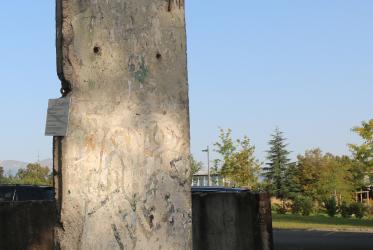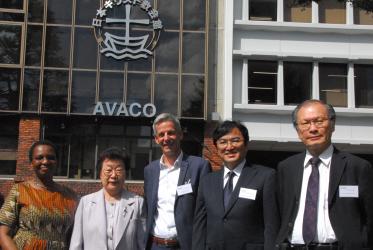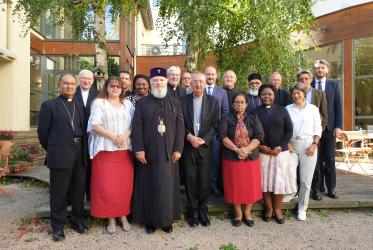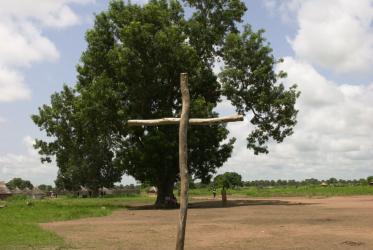Displaying 81 - 100 of 528
19 November 2019
Tveit: “Love is about the future: Where are we going from here?”
17 November 2019
South Sudan Council of Churches: peace “is a question of the heart”
11 November 2019
Churches in southern Africa stand against violence, xenophobia
10 October 2019
WCC gravely concerned for West Papua
25 September 2019
African religious leaders express new concerns over South Sudan peace
19 September 2019
In Japan, theologians reflect on today’s global manifestations of racism
18 September 2019
Dr Saïd Ailabouni: God is on the side of rejected, oppressed, occupied
12 September 2019
Erhard Hermansen: “The church in South Sudan needs our prayers"
09 September 2019
Pope Francis expresses “fraternal closeness” with Waldensian Methodist
09 September 2019
Regional forum in Nigeria centers on banning nuclear weapons
04 September 2019
South Sudan Council of Churches Assembly issues resolutions
02 September 2019
UN day on violence victims stresses religious tolerance
22 August 2019












